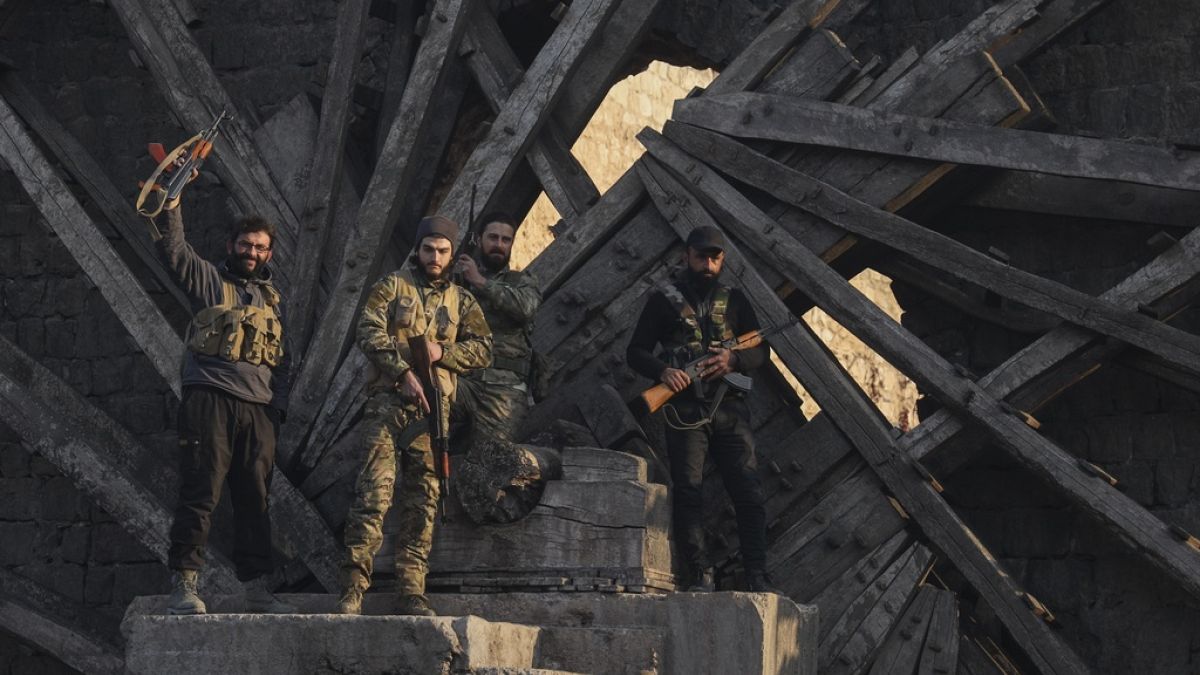Syrian insurgents have reached Damascus suburbs, their first advance near the capital since 2018, while Syrian state media deny rumours of Assad fleeing.
Syrian insurgents have reached the suburbs of Damascus as part of a rapidly moving offensive towards the capital. In recent days, the groups have taken over several of Syria’s largest cities across the country.
Meanwhile, Syria’s state news agency has denied rumours that President Bashar al-Assad has left the country, and says he is at work in Damascus.
It was the first time that opposition forces have reached the outskirts of the Syrian capital since 2018, when Syrian troops recaptured the region adjacent to the capital following a yearslong siege.
It came after the Syrian army withdrew from much of southern Syria on Saturday, leaving more areas of the country, including two provincial capitals, under the control of opposition fighters.
The rapid advances by insurgents is a stunning reversal of fortunes for the Syrian president, who appears to be on his own as allies such as Russia and Hezbollah are preoccupied with other conflicts.
The insurgents close in on key areas
Hassan Abdul-Ghani, a insurgent commander, posted on the Telegram messaging app that opposition forces have started carrying out the “final stage” of their offensive by encircling Damascus. He added that insurgents were headed from southern Syria toward Damascus.
Syria’s military, meanwhile, sent large numbers of reinforcements to defend the key central city of Homs, Syria’s third largest, as militants approached its outskirts.
Rami Abdurrahman, who heads the Syrian Observatory for Human Rights, a Syria war monitor, reported on Saturday that Iran’s military advisers have started leaving Syria. He added that Iran-backed fighters in eastern Syria, mainly from Afghanistan and Pakistan, have withdrawn into central Syria.
The shock offensive began on 27 November, led by the jihadi Hayat Tahrir al-Sham group (HTS), who captured the northern city of Aleppo before also seizing the central city of Hama.
With the fall of the cities of Daraa and Sweida early on Saturday, Syrian government forces remain in control of five provincial capitals — Damascus, Homs, Quneitra, as well as Latakia and Tartus on the Mediterranean coast.
Tartus is home to a Russian naval base, while Latakia hosts a significant Russian air base.
If the insurgents capture Homs, they would cut the link between Damascus, Assad’s seat of power, and coastal regions where the president enjoys broad support.
A threat to Syria’s ‘territorial integrity’
In the gas-rich nation of Qatar, the foreign ministers of Iran, Russia and Turkey were scheduled to meet to discuss the situation in Syria. Turkey, meanwhile, is a key backer of rebels seeking to overthrow Assad.
Qatar’s top diplomat, Sheikh Mohammed bin Abdulrahman Al Thani, criticised Assad for failing to address the country’s underlying problems in recent years. “Assad didn’t seize this opportunity to start engaging and restoring his relationship with his people,” he said.
Sheikh Mohammed said he was surprised by how quickly the rebels have advanced and said there is a real threat to Syria’s “territorial integrity”, adding that the war could damage and destroy what motivation was left to start a political process.
Where are the Kurds in all this?
On Friday, US-backed fighters of the Kurdish-led Syrian Democratic Forces (SDF) took over large parts of the eastern province of Deir el-Zour that borders Iraq, as well as the provincial capital that carries the same name.
The capture of areas in Deir el-Zour is a blow to Iran’s influence in the region, as the area is the gateway to the corridor linking the Mediterranean to Iran, a supply line for Iran-backed fighters, including Lebanon-headquartered Hezbollah.
With the SDF taking control of a main border crossing with Iraq and opposition fighters doing the same at the Naseeb border crossing with Jordan in southern Syria, the government’s only gateway to the outside world is via the Masnaa border crossing with Lebanon.
Since Syria’s conflict broke out in March 2011, the Syrian government has referred to the opposition as terrorists. HTS was formed out of a former Al-Qaeda affiliate, and is considered a terrorist organisation by the US and the United Nations.
Read the full article here
